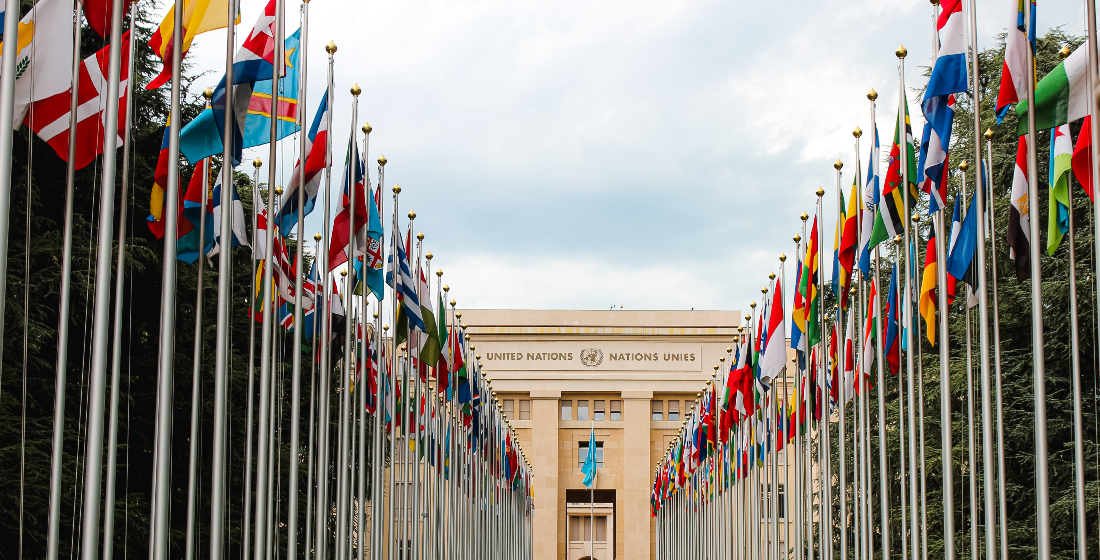COP26: Public and private financiers make landmark climate pledges
Ten G20 countries increase their climate finance commitments; billions in new development finance committed to private sector finance for climate action; and 450 financial institutions equipped with over $130 trillion of assets commit to net zero.

On the third day of the COP26 climate conference in Glasgow today, global finance ministers, financial institutions, and multinational companies made a wide array of new commitments aimed at mobilising finance for climate action.
The conference witnessed new public funding pledges for developing-market climate finance from ten G20 countries, new development finance initiatives and mechanisms launched to mobilise private sector finance for climate action, and a coalition of financial institutions equipped with over $130 trillion of assets committing to science-based net zero targets and near-term milestones.
“Today, there is more public and private finance for climate action than ever before,” said COP26 president Alok Sharma. “But to meet the commitments made in the Paris Agreement and keep 1.5 degrees alive, we need developed countries to deliver on public finance, and to unleash the trillions required in private investment to create a net-zero future and protect lives and livelihoods from the devastating effects of climate change.
“That is why we have made finance such a key focus of COP26, why these new commitments from nations and the private finance sector are so welcome, and why we continue to push for countries to do more to meet their finance obligations.”
Meeting the Paris Agreement’s $100bn climate finance pledge
Developed countries made new commitments to increase finance to help developing countries deal with the impacts of climate change, including a commitment from Norway to triple its adaptation finance, promises from Japan and Australia to double their adaptation finance pledges, and commitments from Switzerland, the US and Canada for the $850 million Adaptation Fund.
This included the largest US adaptation finance commitment to date, to reduce climate impacts on those most vulnerable to climate change worldwide. While Canada committed to allocate 40% of its climate finance to adaptation.
New commitments for climate financing also came from the UK, Spain, Japan, Australia, Norway, Ireland, and Luxembourg; building the Paris Agreement’s pledge to deliver the $100 billion per year to developing countries – now not expected to be achieved until 2023.
To combat the bureaucratic difficulties many countries face securing climate investment, £100 million in new funding from the UK was announced to support the approach of the Taskforce on Access to Climate Finance, co-chaired by the UK and Fiji. The taskforce launched a partnership with five ‘pioneer countries’ – Bangladesh, Fiji, Jamaica, Rwanda and Uganda – to help get them the finance needed for their climate plans.
Further commitments are expected over the coming days, including on adaptation. The summit will also see the launch of discussions on a new global finance goal to replace the $100 billion goal from 2025.
Catalysing private sector finance
There was much talk from finance ministers such as US’ Janet Yellen and UK’s Rishi Sunak of the need to use billions of dollars in public finance to leverage the trillions of dollars in private finance needed for a climate-resilient, net-zero future, and how to support developing countries to access that finance.
The US, the European Commission and the UK also committed to working in partnership with countries to support a green recovery from COVID-19 and boost investment for green infrastructure in developing countries.
The UK additionally committed £576 million for a package of initiatives to mobilise finance into developing economies, including £66 million to expand the UK’s MOBILIST programme, which helps to develop new investment products which can be listed on public markets and attract different types of investors.
The development banks and multinational finance institutions also pitched in with new commitments. Initiatives announced by the World Bank and Asian Development Bank will share risk with developing countries and aim to raise up to $8.5 billion in new finance in support of climate action and sustainable development. The ADB additionally launched the Energy Transition Mechanism (ETM) to accelerate the retiring of coal power and the move to clean energy – as part of the pilot phase in Indonesia, the Philippines, and Vietnam, the ETM is expected to raise $2.5-$3.5 billion to retire two to three coal-fired power plants per country.
The International Finance Corporation (IFC), along with the Hong Kong Monetary Authority (HKMA) and Allianz, launched a new global platform, MCPP One Planet, for Paris-Aligned climate smart investments that will provide up to $3 billion to private enterprises in developing economies. The IFC also teamed up with Amundi to launch a new $2 billion fund that will help to directly mobilise private investment into sustainable and green bonds in emerging markets.
There was also the launch of a new financing mechanism – the Climate Investment Funds’ Capital Markets Mechanism (CCMM) – that will boost investment into clean energy in developing countries. Bonds are planned to be issued in 2022 in the City of London and could mobilise up to $700 million annually, with the potential to leverage a further $70 billion from both the private and public sector.
$130trn aligns to net zero
Furthermore, private financial institutions took a significant step to ensure that existing and future investments are aligned to the global goal of net zero by 2050.
Thirty-five countries agreed to mandatory actions to ensure that investors have access to reliable information about climate risk to guide their investments into greener areas. And to ensure common standards, 36 countries welcomed the announcement of a new international body, the International Sustainability Standards Board (ISSB).
UK Chancellor Rishi Sunak also announced plans to make the UK’s financial centre aligned to net zero. Under the proposals, there will be new requirements for UK financial institutions and listed companies to publish net-zero transition plans that detail how they will adapt and decarbonise as the UK moves to a net-zero economy by 2050.
And in the headline announcement of the day, more than $130 trillion of private finance committed to science-based net-zero targets and near-term milestones, through the Glasgow Financial Alliance for Net Zero (GFANZ), led by UN special envoy for climate action and finance Mark Carney. GFANZ members – spanning 450 firms across 45 countries – are required to set science-based near-term targets within 12-18 months of joining, and more than 90 of the founding institutions have already done so. All members will report their progress and financed emissions annually, and will review their targets every five years.
“The architecture of the global financial system has been transformed to deliver net zero,” said Carney. “We now have the essential plumbing in place to move climate change from the fringes to the forefront of finance so that every financial decision takes climate change into account. Only this mainstream focus can finance the estimated $100 trillion of investment needed over the next three decades for a clean energy future.”





